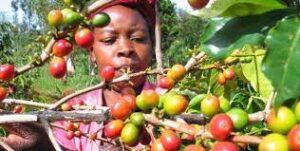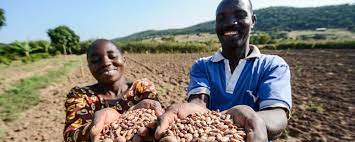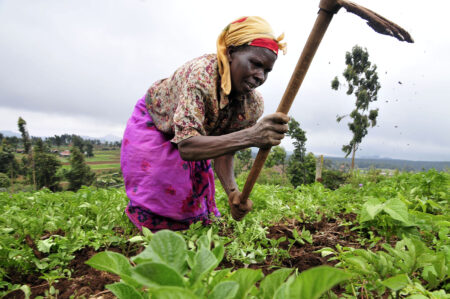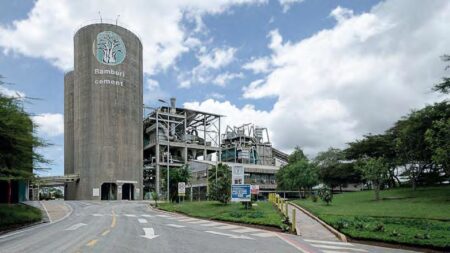 Black gold runs the world and Uganda’s President Yoweri Museveni seems to have struck his long-coveted oil pipeline deal with Tanzania.
Black gold runs the world and Uganda’s President Yoweri Museveni seems to have struck his long-coveted oil pipeline deal with Tanzania.
In the wake of his November state visit to Tanzania, the $3.5 billion deal is heading in the right direction.
However, this article is about another black gold, not crude oil, no, our topic of discourse is another prime foreign exchange earner for Uganda; the sweet aroma filled and much-coveted Robusta coffee, a $657 annual earner for Uganda.
Granted it’s but a fraction of what the oil deal will earn the country but coffee earnings represent much bigger financial inclusion for the Ugandan people than any oil deal ever will.
Here is why. Coffee farming directly employs over 1.7 million Ugandans who produce close to 6 million bags. Actually, Uganda produces 6% of global Robusta and 1% of the world’s Arabica coffee. Put together, coffee brings 18% of all of Uganda’s export earnings.
With coffee being the third most consumed beverage around the world after water and tea, Uganda is right on track investing in coffee production. This is just as well because coffee demand is on the rise.
In September alone (2021), coffee prices reached new record highs enjoying an increase of 6.2% over the previous month and signifying an upward track of demand after a year of diminishing sales tied to the Covid-19 lockdown.
What most people don’t know is that Robusta coffee, a world favourite, is native to and originates from Uganda. That being the case, Uganda produces what is generally considered by international markets to be the world’s best volume of Robusta coffee says the Uganda Investment Authority in its report titled ‘Coffee sector investment profile summary.’
According to another Ugandan government authority, the Uganda Coffee Development Authority (UCDA), Uganda’s coffee exports in 2020 amounted to 5.5 million 60-kilo bags which earned the country an impressive$515.94 million with 63 per cent of this production being exported to Europe.
What these figures mean is that Uganda is Africa’s largest coffee producer second only to Ethiopia but since the latter consumes most of the coffee it produces, Uganda is actually Africa’s largest coffee exporter.
As a matter of fact, Uganda is among the world’s top 10 largest coffee exporting countries, and represents an estimated 2.9% of all world coffee exports. With such large numbers, needless to say, Uganda commands much of the World’s coffee industry and now, Uganda is exercising its power, flexing its coffee muscles.
https://theexchange.africa/countries/tanzania/tanzanians-consume-less-coffee-grown-locally/
Trouble In Paradise: Uganda To Exit International Coffee Organisation
Uganda has submitted its exit letter to the International Coffee Organisation (ICO), arguing that it is not getting what is due to it, or bluntly, Uganda says it is not getting out of the ICO what it needs, that is, marketing and increase of sales.
Chairman of the UCDA board, Dr Charles Mugoya, has accused the ICO of usurping the membership fees to fund its own secretariat instead of ‘building capacity and providing support for value chain actors.’
The chairman was adamant in his statement calling out the ICO as neither a coffee regulatory nor a marketing body but a mere monitoring system that does not have any say in the World’s coffee prices.
The body brings together exporting and importing governments to tackle the challenges facing the world coffee sector through international cooperation.
“ICO only monitors the trends of coffee around the world, then the member countries use the information for their own benefit. Even if we pull out, we do not lose out,” Dr Mugoya said.
With that, another Uganda government representative Dr Emmanuel Lyamuleme Niyibigira, the Managing Director of Uganda Coffee Development Authority (UCDA) wrote to the ICO and told the ‘coffee monitoring body’ that Uganda will not extend its membership after February 1st 2022.
The note reads: ‘We would like to notify the Depository that the government of Uganda will not join the extension of the ICA (International Coffee Agreement) 2007 beyond February 1, 2022’ –Uganda Coffee Development Authority.
Explaining its exit, the President of the Uganda Coffee Federation, Mr Robert Waggwa Nsibirwa, said: “There is a need to operationalise the coffee rules and regulations which are outdated and let us (private sector) be fully engaged and consulted.”
With Uganda now topping the world’s coffee producers’ list, having been ranked third best beating India and coming just after Italy and Brazil, the world’s number one coffee producer, the exit from ICO bares a lot of water.
This is a significant blow to the ICO if not for the fees Uganda pays then for the symbolic message that the body is not meeting its members’ needs. In this case, Uganda says it wants more than to be monitored and informed, it wants marketing, real sale drives that will see the country up to its earnings.
https://theexchange.africa/countries/kenya/kenyas-kshs-3b-cherry-fund-revive-dying-coffee-sector/
World’s Top Coffee Producers
Below is a list of the world’s top coffee producers along with the volume of production. However, when it comes to taste, Uganda coffee is ranked 3rd best in the world coming behind Ethiopia and Kenya. This taste ranking is by professional coffee tasters certified by the Coffee Quality Institute (CQI), a non-profit organization that works internationally to improve the quality of coffee.
In a survey of the top 16 coffee-growing countries in the world, the coffee tasters graded 1,229 coffees and the top three spots all went to African countries.
| Rank | Country | Coffee Production (Metric Tons) | Coffee Production (Pounds) |
| 1 | Brazil | 2,592,000 | 5,714,381,000 |
| 2 | Vietnam | 1,650,000 | 3,637,627,000 |
| 3 | Colombia | 810,000 | 1,785,744,000 |
| 4 | Indonesia | 660,000 | 1,455,050,000 |
| 5 | Ethiopia | 384,000 | 846,575,000 |
| 6 | Honduras | 348,000 | 767,208,000 |
| 7 | India | 348,000 | 767,208,000 |
| 8 | Uganda | 288,000 | 634,931,000 |
| 9 | Mexico | 234,000 | 515,881,000 |
| 10 | Guatemala | 204,000 | 449,743,000 |
1 Top ten coffee producers globally according to International Coffee Organization on Global Coffee Exports (19 November 2019).
Read: Kenya’s coffee doldrums despite numerous revival efforts











